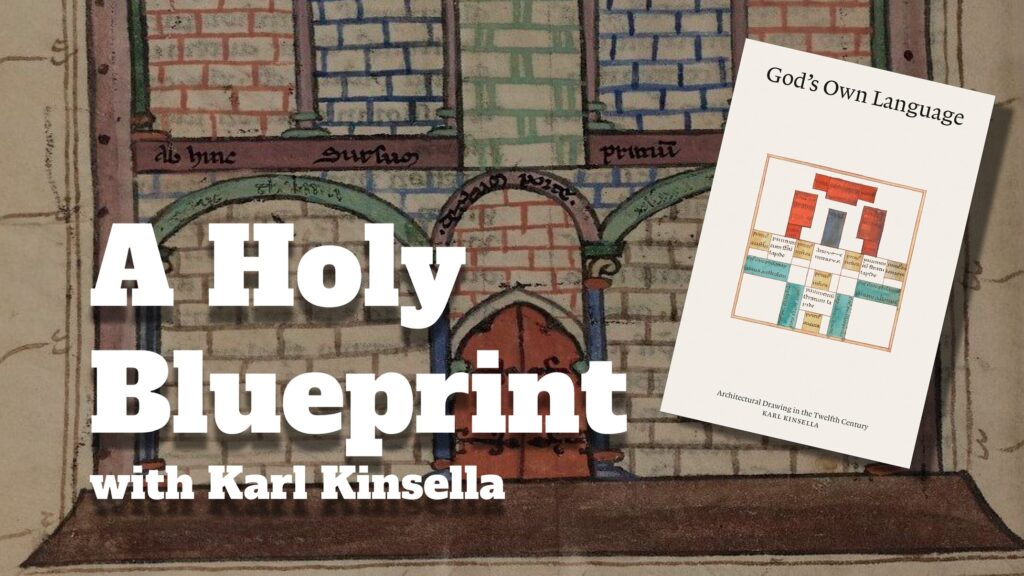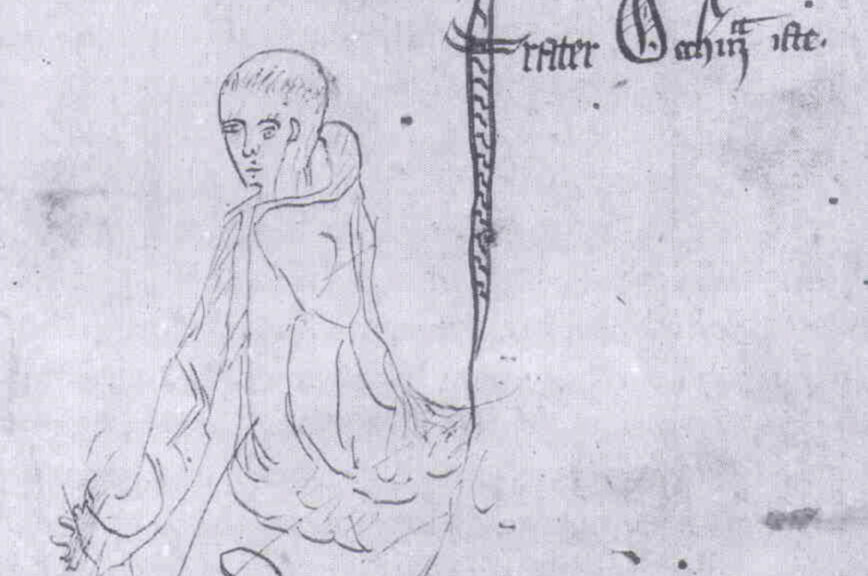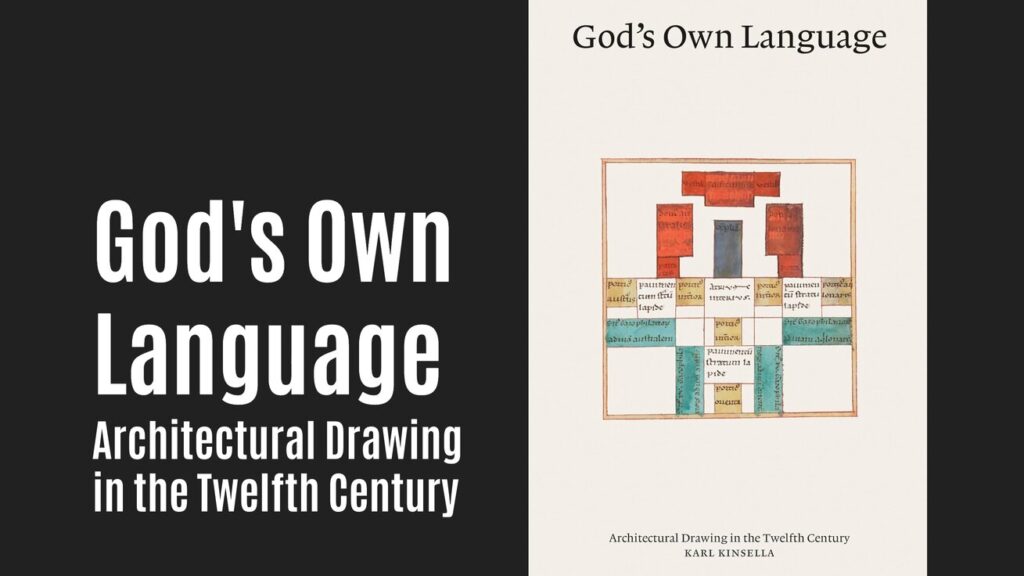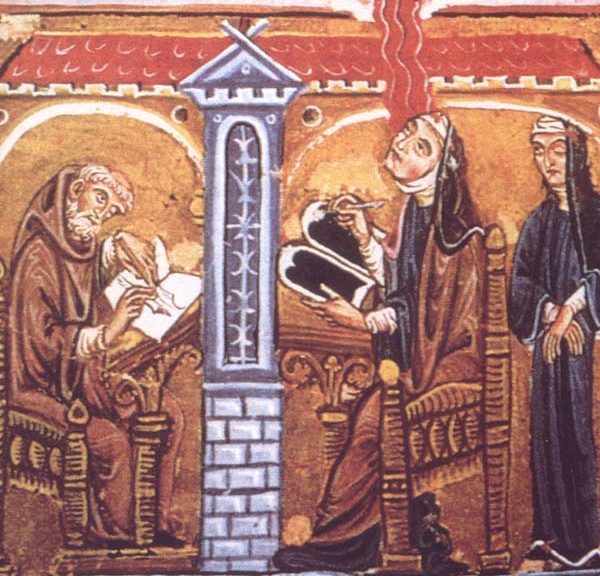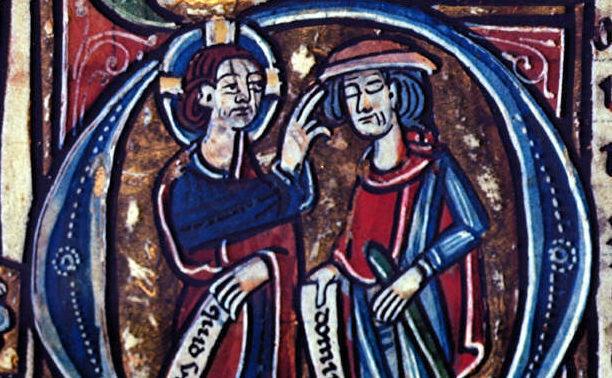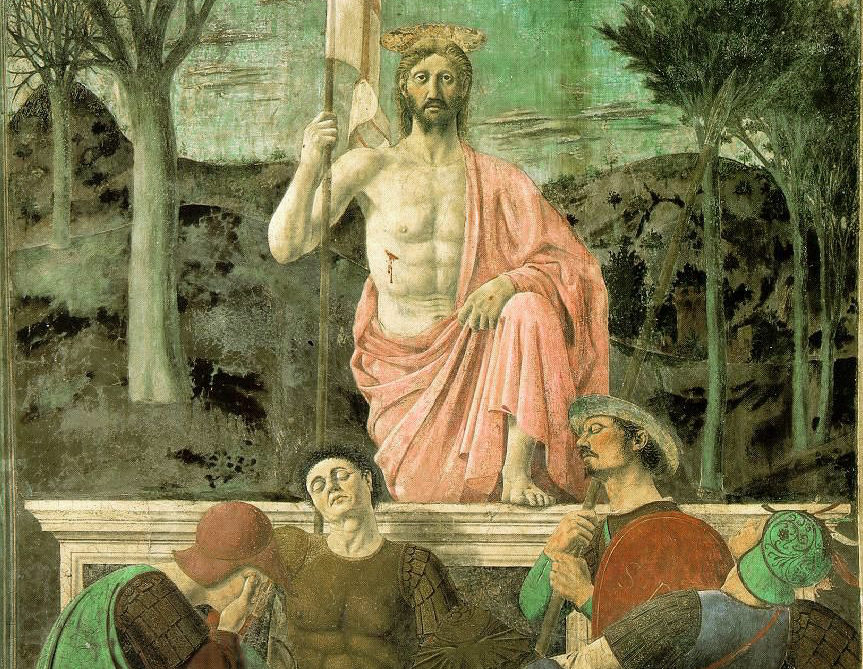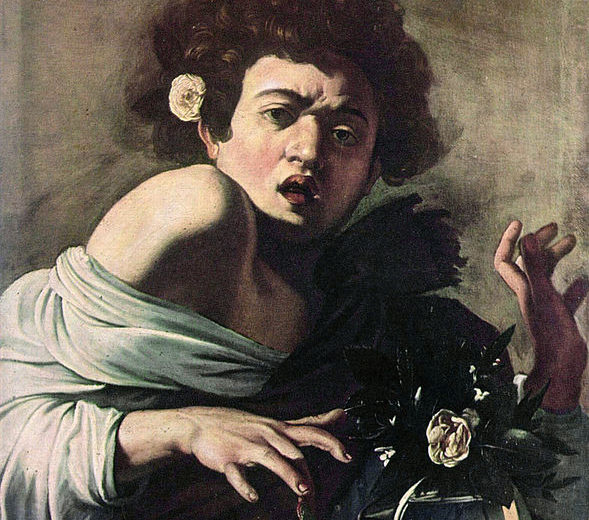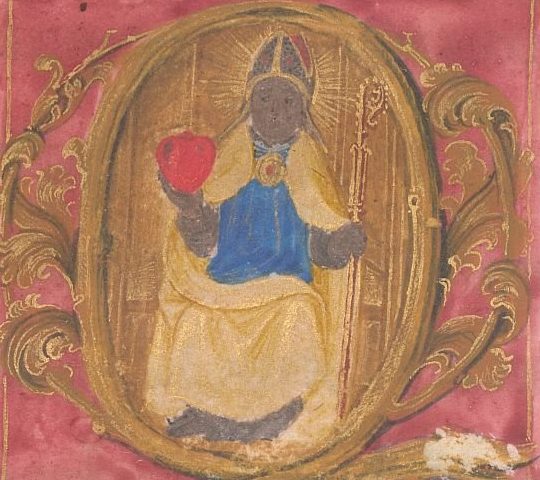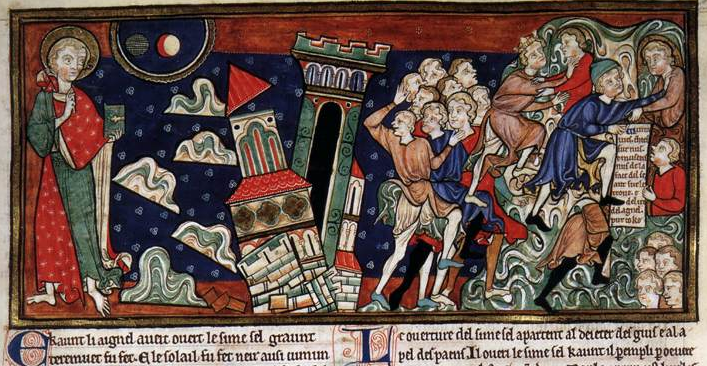New Medieval Books: Writings (1416-1432)
The writings of Pawel Wlodkowic, a 15th-century Polish canon lawyer, are translated in this book. It offers a fascinating view from Poland of their rivalry with the Teutonic Order, their relations with pagan peoples, and Wlodkowic’s opinions on human rights.
New Medieval Books: A Brief Life of Thomas Aquinas
Thomas Aquinas stands as a pivotal figure in the medieval history of Christianity. This biography of the 13th-century theologian, penned by one of the foremost experts on Aquinas, offers deep insight into his life and legacy.
A Holy Blueprint with Karl Kinsella – The Medieval Podcast, Episode 267
This week on The Medieval Podcast, Danièle speaks with Karl Kinsella about the great twelfth-century scholar Richard of St. Victor, his efforts to make the vision of Ezekiel clear, and why this set of biblical blueprints is such an important contribution to the history of architecture.
Constitutionalism and Consent: The Roles of Quod omnes tangit in the Political Thought of William of Ockham
Translated into English as “what touches all must be approved by all,” it has ordinarily been understood by scholars to express a nascent justification of constitutionalism, democracy or popular sovereignty, or at any rate a principle underlying some system of representative government that limited the power of rulers.
New Medieval Books: God’s Own Language
An examination of twelfth-century architecture using the writings and drawings of Richard of Saint Victor. These drawings appear in a biblical treatise depicting a temple, and might be the earliest architectural representations that we have.
William of Auvergne with Lesley Smith
This week on The Medieval Podcast, Danièle speaks with Lesley Smith about William of Auvergne, the thirteenth-century upstart bishop of Paris who shaped a royal saint, changed the university forever, and gently guided the lives of ordinary Parisians with wit and compassion.
Phantomology: from soul to brain. Medieval Studies meets Neuroscience
This joint lecture investigates what the speakers are calling ‘phantomology’, ranging from medieval theology to modern neuroscience.
How the Forbidden Fruit Became an Apple with Azzan Yadin-Israel
Everyone knows that the fruit Eve was tempted to eat in the Garden of Eden was an apple – or was it? This week on The Medieval Podcast, Danièle speaks with Azzan Yadin-Israel about the original fruit of original sin, how written culture and art worked together to transform it, and why it took centuries to settle on the apple.
Fragment of Christian gospel discovered hidden in medieval manuscript
Using ultraviolet photography, a researcher in Austria has discovered a fragment of the Christian gospels written in Old Syriac. The original text was written in the 6th century, but then later erased and copied over hundreds of years later.
Medieval views of hell project receives $60,000 fellowship
Why were medieval people so fixated on hell?
Angels in Medieval Literature
Angels played many roles in medieval literature: they were defenders of justice, bringers of dire warnings, givers of dark tasks, and bringers of good news.
Scriptural Reasoning, Medieval Style: Interfaith Dialogue in Twelfth-Century Paris
Andrew of Saint Victor’s commentary on Isaiah caused a scandal almost as soon as it was written, around 1150. Unlike most of his contemporaries, Andrew often spurned the Christian meaning of the text, in favor of interpretation he found in contemporary Jewish commentators.
How to gain an audience and influence readers in the Middle Ages?
How to gain an audience and influence readers? No one actually knows for sure. People have been struggling to understand the mechanics behind a text’s success since the very emergence of writing systems, trying to elaborate an arsenal of means to enhance the popularity of a written work, secure its widespread dissemination, and make it more influential.
A World Besieged: The Status of Politics in Augustine’s Sacramental Worldview
Augustine of how God acts in the world.
Finding their Voices: Women in Byzantine and Latin Christian Philosophy
But the two voices of humility and transcendence, respectively lower and higher than the discourse routinely employed by male authors, were characteristic of female medieval authors.
Eve’s Sin, Woman’s Fault: A Medieval View
The fall of Adam and Eve has been a favourite theme in literary and religious literature down through the ages both with Christian and non-Christian authors.
Augustine and the Master of the Sentences
This begs the question, what were the Sentences exactly, who was Peter Lombard and what did he have to do with Augustine?
How medieval theologians debated the humanity of Jesus Christ
New research out of the University of Helsinki shows some of the fascinating and differing viewpoints medieval theologians had about the humanity of Christ.
Medieval Gospel Commentary, lost for 1500 years – now translated and online
The earliest Latin Commentary on the Gospels, lost for over 1500 years, has been rediscovered and made available in English for the first time, thanks to research from the University of Birmingham.
Medieval Ideas of the Multiverse
To most of the theologians in Paris, anything not forbidden by logical contradiction was possible for God.
The Resurrection of Jesus and Human Beings in Medieval Christian and Jewish Theology and Polemical Literature
This article will first look at intra-religious discussion among medieval Christians and Jews about resurrection in general to see how they understood it theologically in their respective religious communities.
Pain in Medieval and Modern Contexts
The interplay between Christian religious belief and medicine in the High Middle Ages was complicated.
‘As If Augustine Had Said’: Textual Interpretation and Augustinian Ambiguity in a Medieval Debate on Predestination
This paper reevaluates a sample of Hincmar’s writings in the 840s and 850s to argue that he sought to make explicit what Augustine had left unclear regarding predestination by appealing to common standards of orthodoxy in the forms of additional patristic authors, conciliar judgments, and liturgical practices.
Good versus Evil: Representations of the Monstrous in Thirteenth Century Anglo-French Apocalypse Manuscripts
This paper examines one of the oldest ideological conflicts of all time: that between the divine powers of good and evil in the Book of Revelation, as represented in thirteenth century Anglo-French apocalypse manuscripts.
Augustine of Hippo and the Art of Ruling in the Carolingian Imperial Period
This thesis investigates how the political thought of Augustine of Hippo was understood and modified by Carolingian-era writers to serve their own distinctive purposes.


